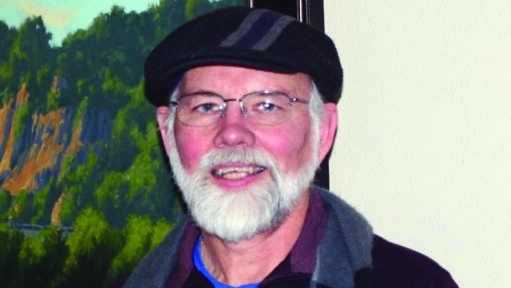Police chief finalists embrace future at community forum
By Casey Ek
Balancing public safety and calls for police reform were among the topics the finalists for St. Paul’s police chief position weighed during a public forum held downtown at the Saint Paul Event Center Oct. 12.
The forum, one of two emceed by Mayor Melvin Carter—the other was held Oct. 11 at Washington Technology Magnet School—gave the public a window into where the candidates stand on key public safety issues. About 50 attended the latter meeting in person.
The candidates being considered include:
Dr. Jacqueline Bailey-Davis, who serves as a police staff instructor in the Philadelphia Police Department’s Standards and Accountability Division/ Audits and Inspections Unit where she conducts oversight of all departmental policies and procedures, develops standard operating procedures and serves in an advisory capacity to line and investigative procedures. She has been a Philadelphia police officer since 1997 and holds a bachelor’s degree from the University of Cincinnati, a master’s in education from Lincoln University and a doctorate in public administration from West Chester University.
Pamela Barragan is currently a unit commander for St. Paul Police Department’s Community Partnerships. Barragan manages sworn and civilian staff and is responsible for establishing and maintaining new and existing partnerships with government and private organizations and serves as a bridge between the police and the community. She holds an associate’s degree in law enforcement from Inver Hills Community College and a Bachelor’s in communication from a college in Quito, Ecuador.
Kurtis Hallstrom is a senior commander for the St. Paul Police Department in the Eastern District where he is responsible for leadership and management. He worked for the University of Minnesota Police Department from 1996-99 then joined SPPD. He holds a bachelor’s in sociology and criminal justice from North Dakota State University and a master’s degree in police leadership from the University of St. Thomas.
Axel Henry is the commander for the Narcotics, Financial Intelligence and Human Trafficking Division within SPPD. He became a uniformed officer in 1995 for the Roseville Police Department before joining SPPD in 1998. Henry has a bachelor’s degree in business administration and accounting and a master’s degree in educational leadership and administration from the University of St. Thomas.
Stacy Murphy is assistant chief of police for SPPD where she oversees the day-to-day operations of the department’s 563 sworn employees, 159 civilian staff and 92 volunteers. Murphy holds an associate’s degree in law enforcement from the Fond du Lac Tribal and Community College and a bachelor’s in criminology and sociology from the University of Minnesota-Duluth. She also has a certificate in leadership from Century College and a certificate in emergency management from the Homeland Security and Emergency Management Program.
The candidates took turns responding to a set of prepared questions fielded by Mayor Melvin Carter as well as audience-submitted questions. A recurring topic was the interplay between widespread simultaneous calls for police reform and better public safety.
Henry said, “I don’t think those concepts are competing at all. The two things complement themselves.”
Addressing how the police department will maintain public safety while not “being hard on neighborhoods”, Henry said St. Paul could “put an officer at every corner, and you wouldn’t feel safer. You would feel like you’re in a war zone.” He instead urges working alongside communities to co-create solutions to public safety concerns.
When asked about how SPPD would ensure officers’ health and wellbeing under her watch, Bailey-Davis said she would institute yearly wellness checks, and “there has to be follow through to ensure officers are fit for duty. At the end of the day, people think we’re superheroes.”
Asked the same question, Hallstrom said active police officers who regularly face traumatic incidents often avoid seeking help, so “‘It’s OK to to not be OK’ is one thing that needs to be pushed.”
Responding to an audience question about what success looks like with regards to community oversight, Murphy celebrated the efforts of the Police Civilian Internal Affairs Review Commission and the feedback they generate.
“They really are the voice of the community,” Murphy said.
“The goal(of responding to PCIARC feedback) is to change behavior and make sure our officers want to do the right thing,” Murphy later added.
Asked about the ideal relationship between SPPD and the new Office of Neighborhood Safety, Barragan celebrated the goals of the office’s Peace Program, a gun violence prevention program that leans into community programming and youth wraparound support services, adding that the program and its police-led counterpart, the ASPIRE (A Saint Paul Intervention and Recover Effort) program will be crucial in forging safer communities.
“(These programs are) the perfect example of how we can work together,” Barragan said, adding that the insights gained through the programs can be applied to other city programs.
Reception
One of the forum attendees was Joe Spencer, president of the Saint Paul Downtown Alliance. He said he hopes the future chief places value on the city’s downtown area, which has been a focal point in the city because of an uptick in crime in recent years, because “our downtown is the economic engine of not only the city, but the whole region,” Spencer said. “I think we really need a leader who is going to inspire confidence that this is a great place to be.”
Sergeant Robert Edwards, an officer in the Eastern District who is nearing retirement from SPPD after over 20 years, said he feels any of the candidates would be a good fit for the department, adding that “a good chief is a leader with integrity who leads by example and is approachable.”
Mayor Carter is expected to make his selection between the end of October and early November.




